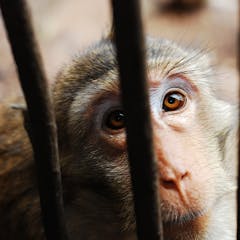
Articles on Veganism
Displaying 1 - 20 of 150 articles

Vegan foods are considered by most consumers to have no ingredients of animal origin, but they may actually contain milk proteins.

A sustainable food system starts with a fairer corporate structure. It won’t simply come from a shift in consumer habits during Veganuary’s push for people to eat a more plant-based diet. Here’s why.

Go vegan for cleaner air and a smaller food bill.

Switching to a plant-based diet could save lives.

Labels highlighting the health and pandemic risks of meat were also effective.

We already have many of the tools to make this imagined world a reality.

Self-study has a rich history in science that dates back hundreds of years.

US study shows environmental messages can put conservative consumers off trying and buying plant-based products.

Being minimally Buddhist requires a practitioner to abstain from destroying any breathing beings. So how is it ok for some Buddhists to eat meat? Two philosophers explain.

We studied 55,000 people’s diets and linked them to data on environmental impacts of food.

There are lots of other ingredients you can use to make foods puff and rise, give your meal a rich taste, or to hold together ingredients.

Everyone loves a barbecue – here’s how to enjoy it while being mindful of our planet.

Vegan wool, peanut coats and the discovery of DNA: the forgotten life of scientist William Astbury

Indonesians are consuming more and more processed foods, including sugary drinks, salty snacks, junk food, and unhealthy fats. These changes take a toll on people’s health, as well as the environment…

More people are opting for a “social omnivore” lifestyle – could it save the planet, your health and your social life?

Considering veganism as bigger than your own dietary choices can free you from futile debates about what is and isn’t acceptable on the plate.

Taking part in Veganuary? Then you’ll want to read this.

As omnivores, humans can choose to not consume any animal products. But what happens when we feed a vegan diet to our carnivore companions?

Eggs are hard to beat, but there are plenty of other options.

Raw veganism may have more risks than benefits.
